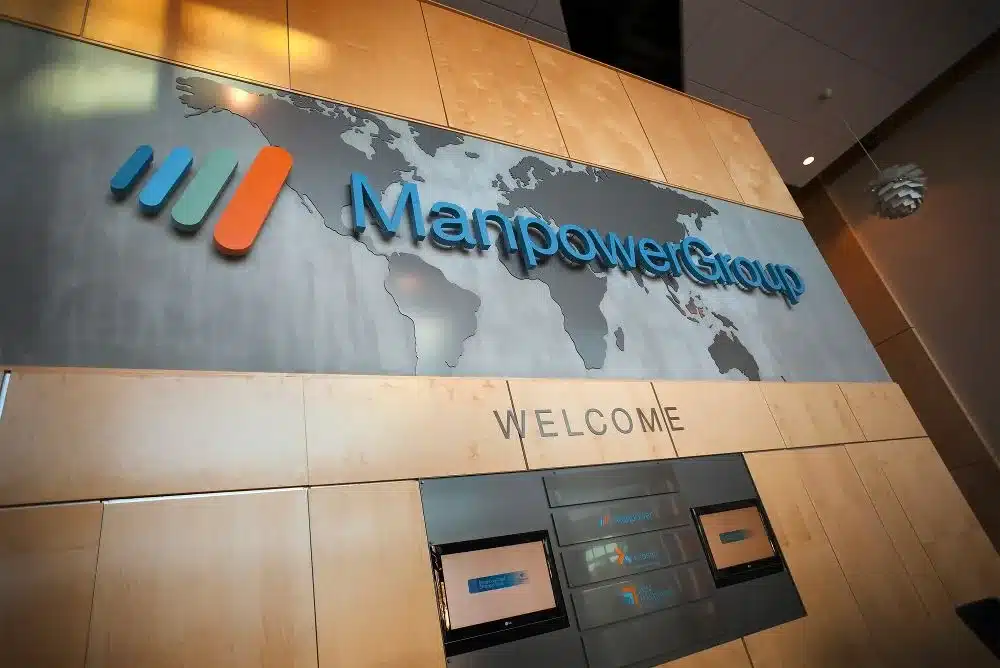The youngest employees often bring a lot of new energy to teams, but employers also notice challenges related to hiring talents starting their careers. As the ManpowerGroup report “Labor Market in the Age of AI” shows, the biggest challenge is meeting financial expectations, and the most effective action increasing the level of engagement and productivity of young talents is enhancing the use of new technologies in the company.
As part of the study for the ManpowerGroup report “Labor Market in the Age of AI”, Polish employers were asked what actions most effectively increase the engagement and productivity of young workers with up to 10 years of professional experience. Respondents indicated that the best results were achieved by increasing the use of technology at work (77%), increasing remuneration (76%), and emphasis on wellbeing (75%). Improving the onboarding process (74%), flexibility in choosing working hours (73%), and greater transparency regarding internal career development opportunities (72%) also have a positive effect on the engagement and productivity of young talents.
“Adjusting the modern work environment to the expectations of representatives of different generations is key for the functioning of companies. Currently on the market, we have representatives of several generational groups with different expectations and sometimes completely different attitudes to life or work,” says Justyna Mazur, an IT labor market expert and leader at Experis. “Flexible working hours, work-life balance, personal development, and meaningful work in line with their values are important for employees with no more than 10 years of professional experience, mainly Millennials and Generation Z. They are skilled at navigating the world of the latest technologies. They use mobile banking, shop online, are audience members of streaming platforms, communicate largely through social media and different messengers. They expect technology to be available and helpful in performing professional duties. They want to use familiar solutions, develop skills, perform their tasks quickly and efficiently, and draw satisfaction and motivation from it. From the employer’s perspective, investing in modern technologies is therefore not only necessary in the context of supporting the operational efficiency of companies, but also helps to attract talents effectively and may even support reducing employee turnover,” emphasizes the expert.
“As technology develops, new challenges related to talent management arise. Employers increasingly have to deal with the growing financial expectations of young employees and their decreasing engagement and motivation. In an era where employees are looking for not only good salaries, but also a sense of meaningful work, opportunities for development, organizations must find a way to attract and retain top talent. A key element is creating an organizational culture that meets the needs and values of employees, offering them the opportunity to achieve personal and professional goals,” adds Marta Szymańska, a labor market expert and leader specializing in Manpower.
What challenges do companies notice when it comes to new talent in the labor market?
According to the analysis, the biggest challenge for employers is financial expectations (42%) and employee engagement and motivation (39%). Recruitment and retention of talents in the company (32%) are also high on the list, as are employees’ expectations regarding development (31%). The top 5 challenges list is rounded off by a lack of skills necessary for a given position (30%).
As Justyna Mazur adds, young workers have high aspirations and salary expectations, fueled by awareness of their qualifications, as well as growing costs of living and education. Finding a compromise between the high expectations of young workers and the possibilities of the company budget is a challenge in today’s times. “However, this does not mean the end of the challenge, because a well-paid employee does not always remain engaged and motivated. Younger employees are constantly looking for not only development opportunities, but also a sense of purpose in their work. Lack of these elements in professional life leads to a decrease in their engagement, and ultimately a separation from the company. Thus, even the best-paid employees may not fulfill the hopes placed in them, which is why it is so important to not only recruit the right people but also to keep them in the organization for many years. Employees want to have career development options, a specific path, but also access to training programs and budgets. The rapidly changing business environment and the fast pace of technological change force employers to create reskilling plans. In this way, employers eliminate another challenge, which is the lack of skills for a given position. Companies must face defined challenges in a comprehensive way. Those who meet the situation will gain a competitive advantage based on engaged, loyal, and satisfied with their job teams,” summarizes the Experis expert.
Source: https://ceo.com.pl/77-firm-wdraza-ai-by-zwiekszyc-zaangazowanie-najmlodszych-pracownikow-71896
